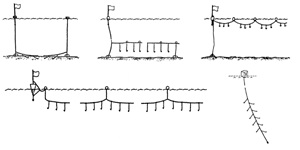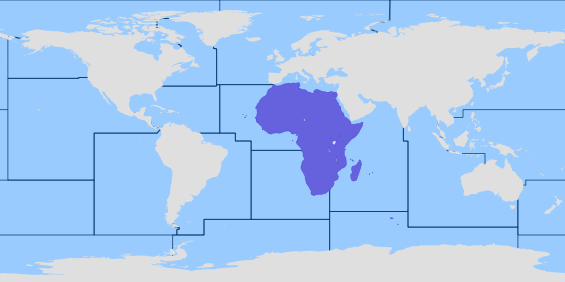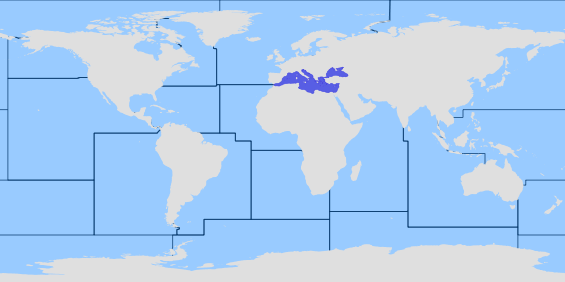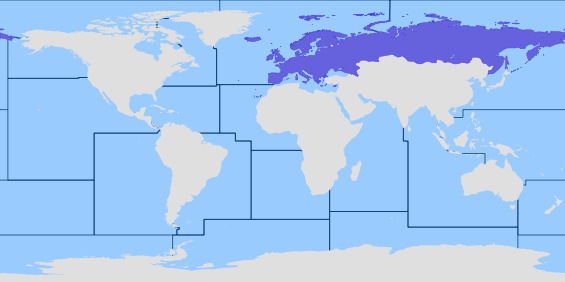Diagnosis: dorsal fin slightly higher than long; located more posteriorly than in other Salmo species; caudal fin more forked than other Salmo species; 8-12 round, black spots (parr marks) on sides (Ref. 4904, 52923, 94703, 94704), which are more prominent in juveniles and are retained in adults (Ref. 55619). Low gill raker count and dark spots on sides distinguish it from S. akairos; it differs from S. trutta in slightly lower vertebral count and pyloric caeca counts, and having the parr marks more conspicuous; 10-11 anal fin pterygiophores (Ref. 55619). 14-17 small scales between adipose fin and lateral line (Ref. 1878, 52923, 55619).
Description: eye diameter 3.5-4.5x in HL and 1.0 to 1.25x in interorbital space (Ref. 52923). Double row of vomerine teeth (Ref. 52923, 94703, 94704) in a zigzag pattern (Ref. 1878, 3021, 52923). Well-developed jaw and palatine teeth; maxillary extends to below posterior third of eye or a little beyond posterior margin of eye (Ref. 52923). Head length 4.0-4.5x in TL (Ref. 94703, 94704) or 3.2-4.25x in SL (Ref. 52923). Body depth 3.3-4.3x in SL (Ref. 52923). 13-14 caudal fin upper procurrent rays; 10-12 left side brachiostegals; 13-14 dorsal fin pterygiophores (Ref. 55619). Scale formula 22-27/95-128/28-32 (Ref. 52923). Caudal fin deeply emarginate in young, feebly in adults (Ref. 52923).
Colouration: back is olive-brown, shading to golden-yellow or yellowish-white beneath (Ref. 1878, 4904, 52923). Small black (red in life) spots on both sides of body (35-40 on each side) similar to other Salmo species (Ref. 94703, 94704). These spots sometimes encircled with whitish or bluish coloured rings (Ref. 1878, 4904, 52923). One clear, black spot on operculum (Ref. 1878, 52923, 94703, 94704). Dorsal fin with black anterior margin and small black spots; anterior margin of anal fin is black. Other fins uniformly pale (Ref. 94703, 94704). Round, black spots along the lateral line (Ref. 1878, 52923, 94703, 9470




